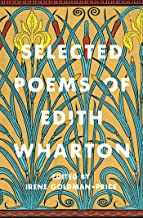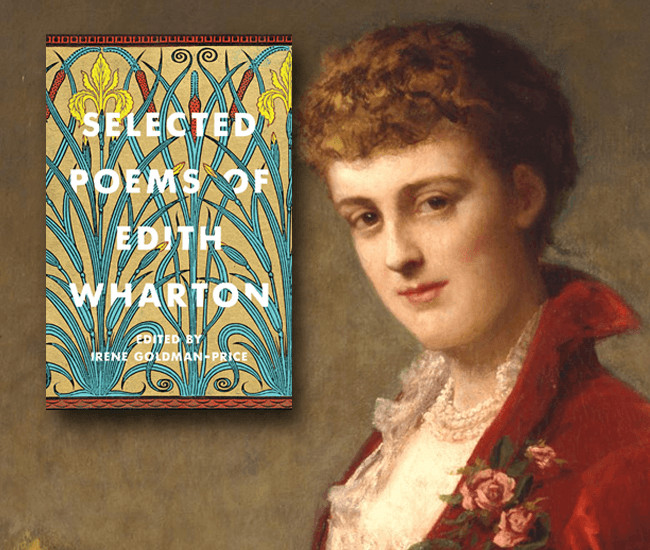Selected Poems of Edith Wharton by Irene Goldman-Price
I should probably start off this review by mentioning that I don’t know anything about poetry. Some of it is good and some of it is bad, but the bad poetry tends never to get published and popular, so I think it’s safe to assume that most of the poetry I’ve read, aside from Milk and Honey and Ernest Cline’s “Nerd Porn Auteur,” is good poetry.
Of course, if you’re picking up a copy of Selected Poems of Edith Wharton (Scribner), assembled by editor and Wharton scholar Irene Goldman-Price, you’re likely here out of appreciation for the poet rather than the poems.
Edith Wharton, known in her youth as “Pussy Jones,” began writing poetry as a teenager and continued through her lifetime. The early poems, collected in her 1878 collection Verses (published when she was just sixteen) and republished here, demonstrate a surprising awareness for the complex decisions and emotions faced by adults.
In “Some Woman to Some Man” she laments “We might have loved each other after all, / Have lived and learned together! Yet I doubt it; / You asked, I think, too great a sacrifice.” Wharton, deprived of many universal experiences such as true companionship due to an unlucky marital match, nevertheless shows remarkable insight here into the pangs of unrequited love.
As a young woman she also examined the roles and expectations faced by women, penning “Wants” at eighteen: “But when both love and friendship fail, / We cry for duty, work to do; / Some end to gain beyond the pale / Of self, some height to journey to.”
Although Wharton’s perceptive eye never shied away from subject matter beyond her years, her poetry often reflects her contemporary interests and struggles. At thirteen she began writing sonnets, and when World War I broke out she wrote antiwar poems.
One untitled 1908 gem immortalizes her affair with Morton Fullerton: “Recall my mouth, that knew not how / A kiss is cradled and takes wing, / Yet fluttered like a nest-hung bough / When you had touched it like the Spring…” This poem and others collected in a poetry diary kept by Wharton, illuminates her life and work just as well as her recovered letters.
Whether covering material familiar to her or abstract hopes, dreams and ideas, Wharton leaves pieces of herself to be discovered in these poems, and editor Irene Goldman-Price has collected the most remarkable 134 of them for this book.
The final poem, written at the very end of Edith Wharton’s long and illustrious life, depicts the poet and author at peace: “When unregarding Death shall come, / Pick me up and take me home.”
Selected Poems of Edith Wharton is now available.
Buy this Book!
Amazon




